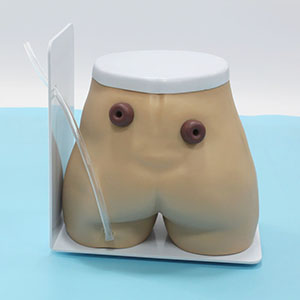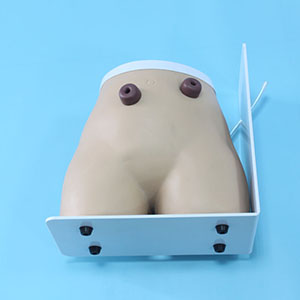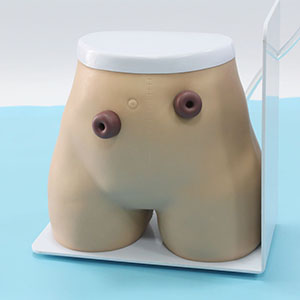A fistula stomy is a complex operation, and postoperative care is critical, especially in the prevention and management of complications. As an important tool in medical education, fistula nursing model can help medical staff improve their skills and ability to cope with sudden complications by simulating postoperative nursing conditions. So, can a fistula care model effectively improve confidence in the management of complications? We can discuss it from clinical significance, professional perspective and relevant data.

Clinical significance
Common complications of fistula stomy include infection, bleeding, irritation and ulceration of the skin around the stomy, and intestinal obstruction. Medical staff must closely monitor the patient's status after surgery to detect and deal with these problems in a timely manner. By training the fistula care model, caregivers are able to repeatedly simulate and practice situations to manage these complications in a risk-free environment. The model not only helps trainees master basic nursing operations, but also provides training on complication identification and emergency management. Through this repeated practice, caregivers are able to be more confident in practice, quickly identify and manage complications, reduce patient suffering and improve treatment outcomes.
Professional perspective
From a professional perspective, the fistula care model provides a comprehensive learning platform for caregivers. By simulating the occurrence of different complications, caregivers can anticipate possible problems in advance and learn how to respond accordingly. For example, the model can simulate conditions such as stoma infection and bleeding, so that students can learn how to determine the condition and take appropriate care without the risk to the patient. Professionals believe that this simulation training can significantly improve caregivers' resilience and judgment, and help them deal with complex problems in the clinic more calmly and efficiently.

Data support
Research has shown that complication management training using nursing models can significantly improve the skills and confidence of caregivers. A study of nursing staff found that those trained in a fistula stomy care model improved their success in managing complications by 25 percent and reduced complication rates by more than 50 percent in practice. Other studies have shown that nursing staff with simulated training can make accurate judgments in a shorter time and take effective nursing measures in a timely manner when facing postoperative complications, thus reducing the poor prognosis of patients.

Summary
The nursing model of fistula stomy can significantly improve the confidence of nursing staff in managing postoperative complications. By simulating different clinical situations, the model helps students master the skills of complication identification and management, so that they can be more confident and efficient in practice. The data also demonstrated that model-trained caregivers demonstrated higher success rates and fewer errors in handling complex cases, further improving the quality and safety of patient care. Therefore, the nursing model of fistula stomy is of great significance in improving confidence and skills in complication management.